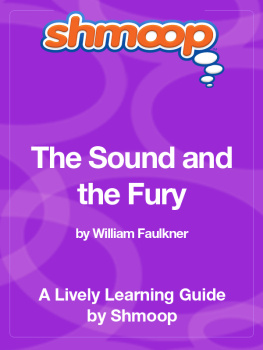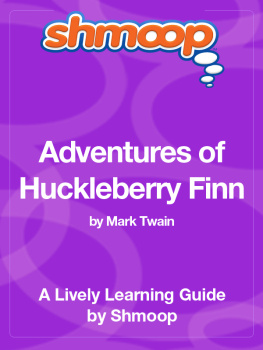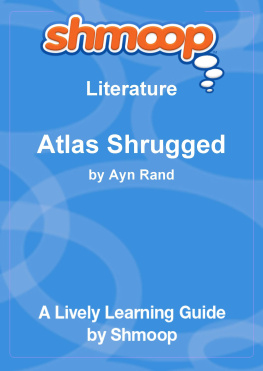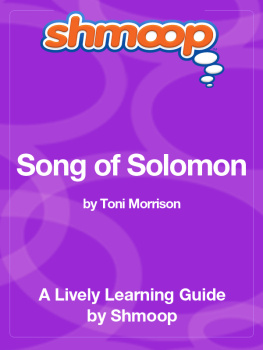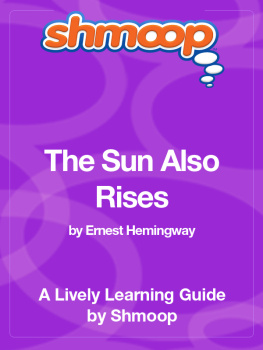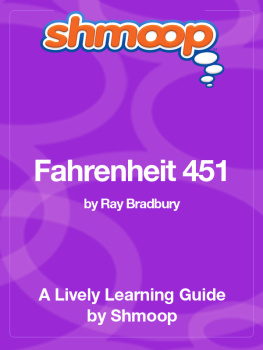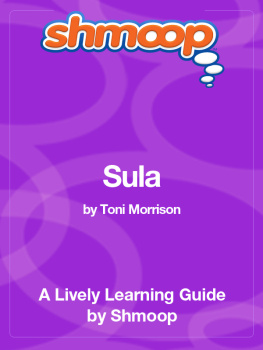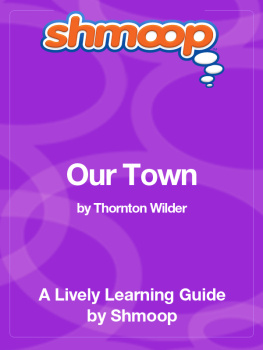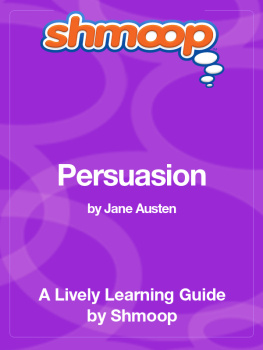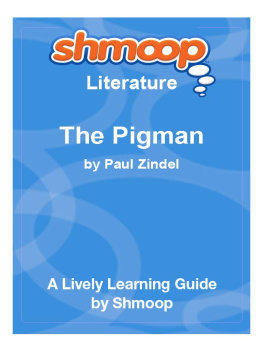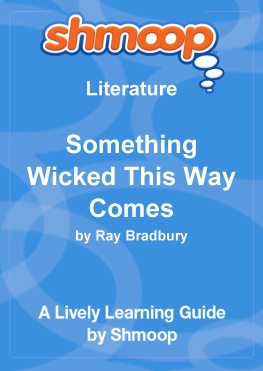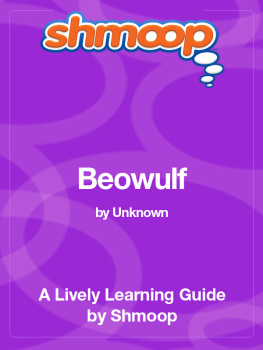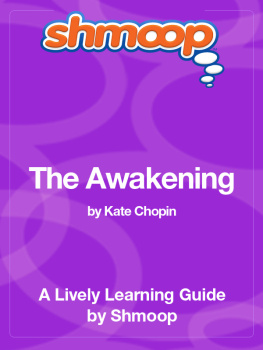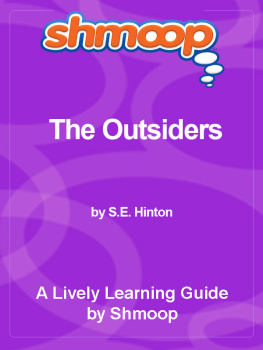
Table of Contents
In a Nutshell/Overview
The Sound and the Fury by William Faulkner may just be the greatest Southern novel ever written. It may also be the most searing discussion of race in a modernist novel. It may also be the greatest family drama ever composed. Heck, it may just be the Great American Novel. We don't mean to toot Faulkner's horn here, but lots of folks have been saying things a lot like these ever since The Sound and the Fury burst onto the scene in 1929. It was Faulkner's first critically-acclaimed novel, and it immediately launched the young author from Mississippi into the literary limelight. That's a fancy way of saying that The Sound and the Fury made Faulkner famous - fast.
Of course, the funny part of this story is that Faulkner didn't gain a wide readership until 1931, when he published Sanctuary. It's a potboiler of a novel, one with lots of alcohol and sex and violence. Once Sanctuary made it big, folks started realizing that Faulkner's other work was actually technically (and emotionally) brilliant. His work was so brilliant, in fact, that the good folks at the Nobel Foundation awarded him the Nobel Prize for literature in 1949.
The Sound and the Fury wasn't a flash in the pan, either. Seventy years later, it's being read and taught on a regular basis. Even Oprah loves it.
The novel traces the decaying values of the Southern society in which it's based, while also tracking the desperation and hopelessness of individuals (the three brothers of the Compson family) as they each try, in their own way, to mourn the loss of their sister, Caddy. Caddy's sexuality, her early pregnancy, and her quick and unhappy marriage are the obscured heart of this novel: everything else happens after (and as a response to) the actions of Caddy.
Ironically, Caddy is the one Compson who's not given a section of the novel in which to explore her own story. Instead, Faulkner allows the center of the novel to exist as a gaping hole, one which various narrators attempt to fill with their own memories of the past.
In a very famous essay on Faulkner called "On The Sound and the Fury: Time in the Work of Faulkner," Jean-Paul Sartre argued that this negotiation of the past makes Faulkner's novel a brilliant example of modern technique and existential philosophy. Here's what he has to say:
The past takes on a sort of super-reality; its contours are hard and clear, unchangeable. The present, nameless and fleeting, is helpless before it. It is full of gaps, and, through these gaps, things of the past, fixed, motionless and silent as judges or glances, come to invade it. Faulkner's monologues remind one of aeroplane trips full of air-pockets. At each pocket, the hero's consciousness "sinks back into the past" and rises only to sink back again. The present is not; it becomes. Everything was. In Sartoris, the past was called "the stories" because it was a matter of family memories that had been constructed, because Faulkner had not yet found his technique.
In The Sound and the Fury he is more individual and more undecided. But it is so strong an obsession that he is sometimes apt to disguise the present, and the present moves along in the shadow, like an underground river, and reappears only when it itself is past.
OK, so we've got to admit that Sartre's a whole lot smarter than we are. And he's a pretty good writer, too. We won't try to outdo him: we'll just point out that, for Sartre, the sort of playing with time that Faulkner employs in The Sound and the Fury becomes a hallmark of a new literary form. It's also a fine example of modernist aesthetics, which foreground the difficulty of understanding a character (or a person) completely. See, for the modernists, language itself is a tricky medium. It never completely conveys what you want it to convey. It's sort of like when you try to explain something to one of your friends: you're sure that you've told the whole story clearly, but they look at you like you're crazy. As another famous modernist once wrote, you're left thinking, "That is not what I meant at all. That is not it, at all." (That's T.S. Eliot's "The Love Song of J. Alfred Prufrock," by the way.)
If you've ever felt that way, congratulations. You're beginning to understand the modernists. See, modernists decided to play with the difficulty of language - to make the reader HAVE to experience how difficult language can be. We know, we know, it can be super-frustrating. But it's also sort of cool. And for Faulkner, playing with language allows him to explore the psychological depth of his characters and the deep emotional resonance of the South in his characters' lives.
Why Should I Care?
So, you're talking to a friend. You've just had this amazing thought (or plan or idea. You pick). Amazing things have been happening in your head. You're totally excited about telling your best pal all about your brilliant thought/plan/idea. And he seems totally into it, too. He's listening and nodding and even seems sort of interested. All of sudden, his eyes glaze over...and that's when you realize that he has no idea whatsoever what you're talking about. You could have spent the last three minutes talking to your dog. You'd get about the same reaction.
Ever feel like there's nobody out there who understands you? Your friends are cool, sure, but they just don't get it. And your family? You'd try to talk to them, but...it's complicated. Well, exactly. Complicated is pretty much what this novel is all about. People just aren't that easy to understand. Even when you meet them as characters in a novel. Sure, you crack the cover of The Sound and the Fury and all of a sudden you've got front row seats watching the life of the Compson family, but that doesn't mean that they're any easier to understand than the people in your own life.
See, language - talking - words - they're all tricky things to handle. Everyone understands things differently. You say, "I'm sorry." Your sister hears, "I hate you." It's rough, we know. And we've got to warn you, William Faulkner doesn't play nice. He doesn't make things easy to understand all the time. He doesn't promise happy endings. He does, however, keep it pretty real. The Sound and the Fury re-creates thoughts and language in all their glorious, frustrating, incredibly haunting potential. Even when you can't say what you want to say, you can still say some pretty breath-taking things. At least, that's Faulkner's style. Sit back and enjoy the ride.
Whats Up With the Title?
We've got to hand it to Faulkner: the guy draws from only the best sources. Need a title? Might as well turn to the greatest author in the English language. (Shakespeare, in case you were wondering.)
The Sound and the Fury is actually a reference to one of the most famous ending soliloquies in Shakespeare's oeuvre. (Since Faulkner's using lots of high-brow literary language, we here at Shmoop thought that we would, as well. After all, it's only fair. "Oeuvre" is a French word that describes an author's/creator's entire body of work. If you're a basketball player, all those sweet moves you've got might just be described as your oeuvre. Use that one to impress your folks. It's on us.)
Back to Shakespeare and
The Sound and the Fury, however; as we were saying, "sound and fury" comes from a very famous play. It's from
Macbeth, to be specific. As you probably guessed from reading Faulkner, he tends not to like comedy as much as he looooves a good tragedy. It's probably fitting, then, that he chose to use Macbeth's meditations on how his world has fallen apart at the end of the play.

